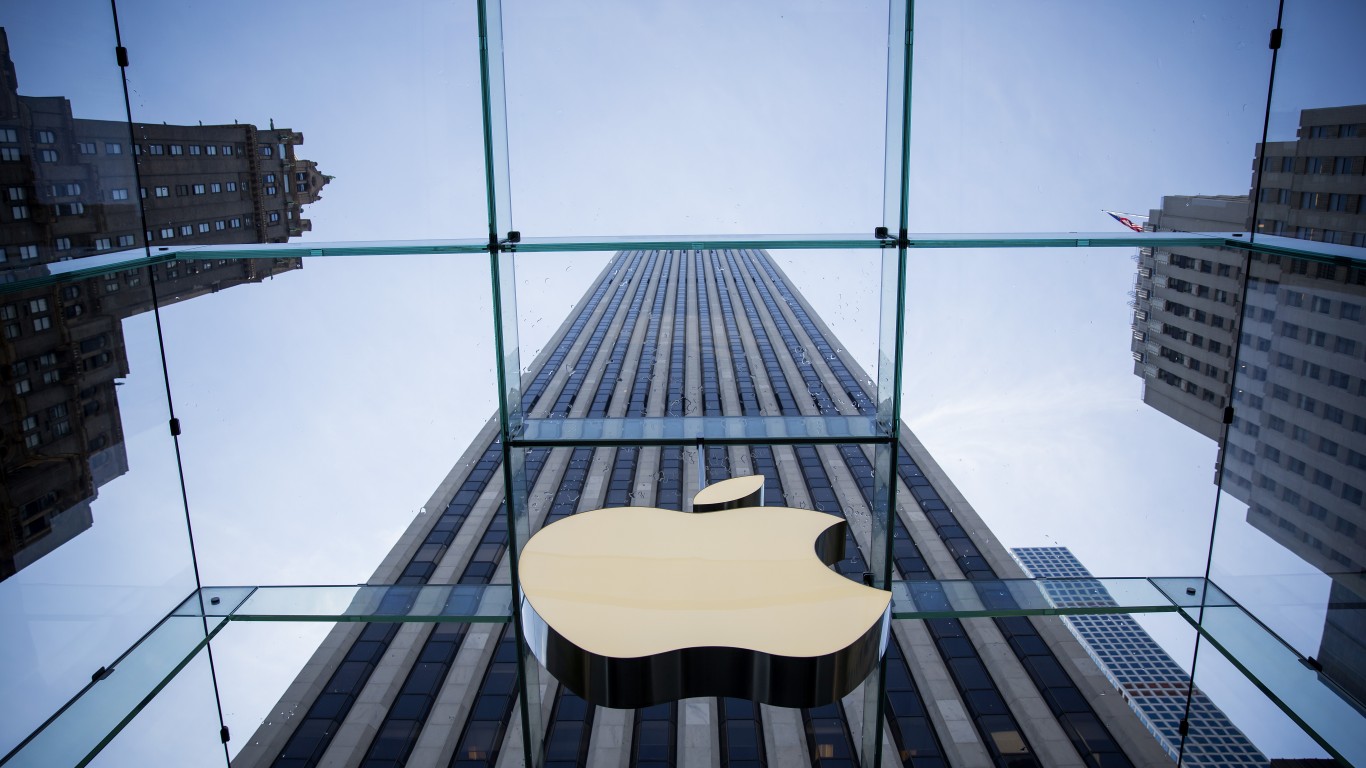Technology
What's Up With Apple: AAA-Rated, Supply Chain Woes Worsen, and More

Published:

Moody’s Investors Service on Tuesday upgraded its credit rating on Apple Inc. (NASDAQ: AAPL) to Aaa, the firm’s gold-plated, prime rating for Apple debt. What it means is that Apple will receive the lowest possible interest rate on any future borrowing.
[in-text-ad]
In its announcement of the rating change, Moody’s noted: “Apple’s very strong business profile reflects its substantial operating scale, a large installed base of products and users of its services, strong customer loyalty, and premium brand positioning that drives its industry-leading profitability across product categories.” Analyst Raj Joshi said:
The upgrade of Apple’s rating to Aaa reflects the company’s exceptional liquidity, robust earnings that we expect will continue to grow over the next 2 to 3 years, and its very strong business profile. Apple’s ecosystem of products and services provides enhanced revenue visibility over time despite some level of volatility that is inherent in its business from product introduction cycles.
And it is all about the cash:
Moody’s expects that a mix shift toward higher-value 5G smartphones and sustained growth in higher margin Services will support strong profitability and annual free cash flow of $80 billion to $90 billion (over 50% of total Moody’s adjusted debt) over the next 12 to 24 months. Apple’s $173 billion of unrestricted cash balances and free cash flow result in an unmatched liquidity profile with substantial financial flexibility.
All this doesn’t mean that there are no headwinds. Loup Funds analyst Gene Munster, a long-time Apple bull, wrote Wednesday morning that 10 Apple products his firm tracked over the past four weekends in six countries indicate that supplies remain tight. In fact, Munster thinks that Apple’s estimate of an $8 billion hit to sales is too low and that sales for the December quarter will fall short by $10 billion.
The good news is that Apple will recover two-thirds of that shortfall in the March quarter and that delays for some products have been reduced. The new iPad models have the longest lead time, 42 days, while the Apple Watch has the shortest delivery time, one day. New iPhone 13 models have an average delivery time of two days, down from four days last week and eight days three weeks ago.
Briefly noted:
The U.S. Transportation Security Administration (TSA) plans to begin accepting mobile driver’s licenses (known as mDLs in the industry) stored in a person’s Apple Wallet at two U.S. airports beginning in February. According to the Secure Technology Alliance, “TSA is preparing to begin its phased rollout, with mDL Apple Wallet integration being its first step, which will allow select security checkpoints in participating airports to be the first locations people can use their mDL in the Wallet app.”
Last September, Nia Impact Capital, an investor in Apple, filed a shareholder proposal for Apple to include on the agenda of the company’s next shareholder meeting. The proposal would have required the company to assess the potential risks to the company of non-disclosure agreements (NDAs) and other policies that conceal the company’s decisions. Apple responded by asking the Securities and Exchange Commission to allow it to exclude the proposal from the meeting’s agenda because the company had already “substantially implemented the proposal.” On Tuesday, the SEC rejected Apple’s request, saying that the company had not, in fact, done so.
Thank you for reading! Have some feedback for us?
Contact the 24/7 Wall St. editorial team.